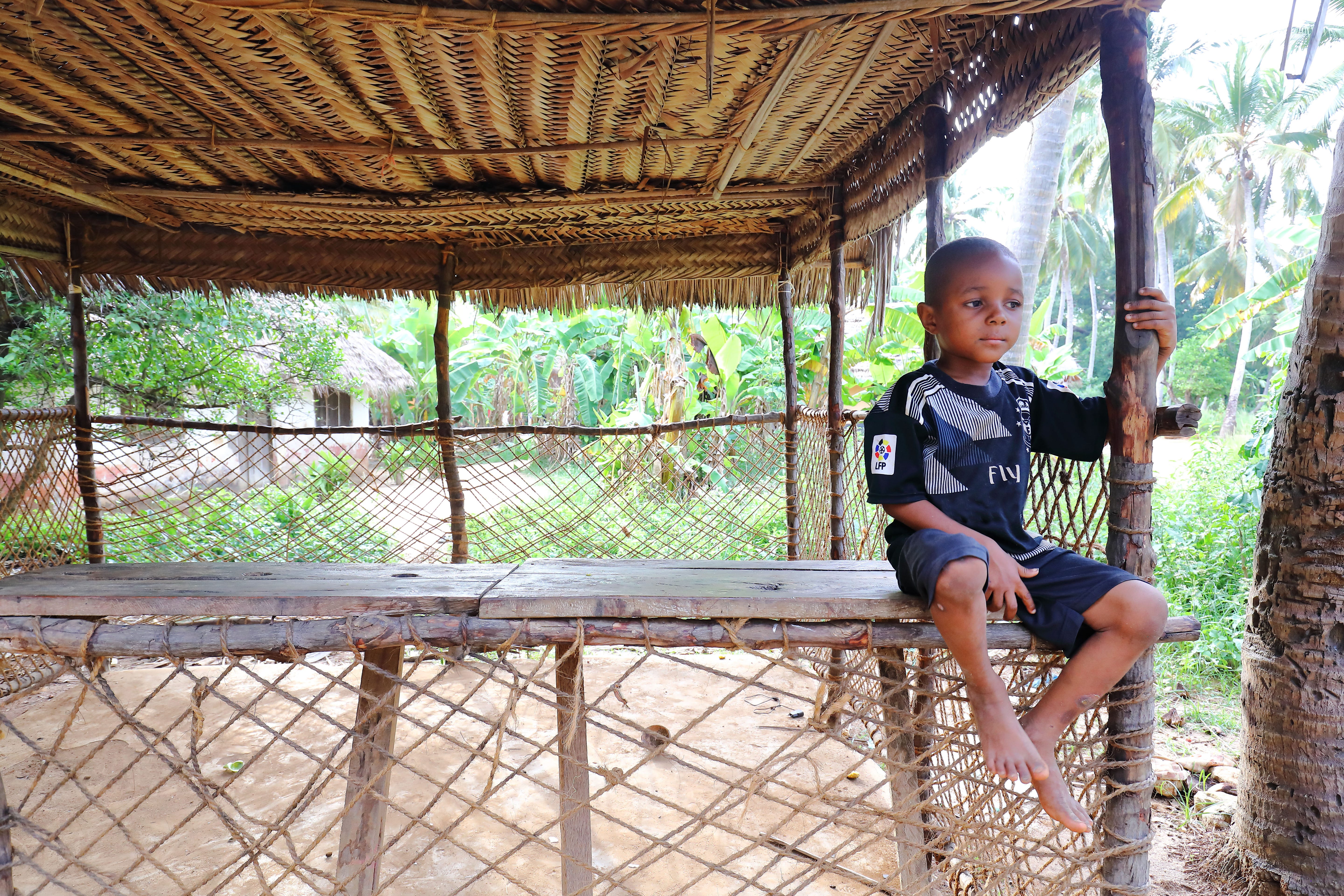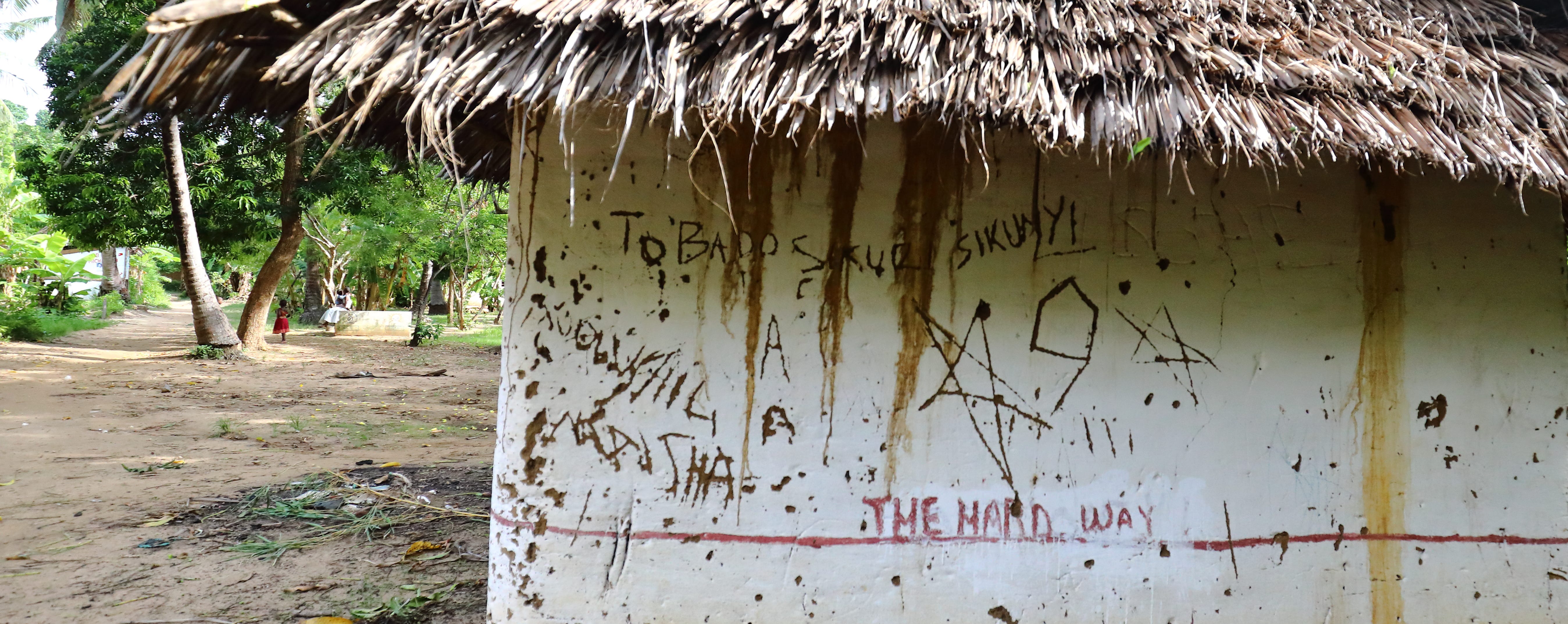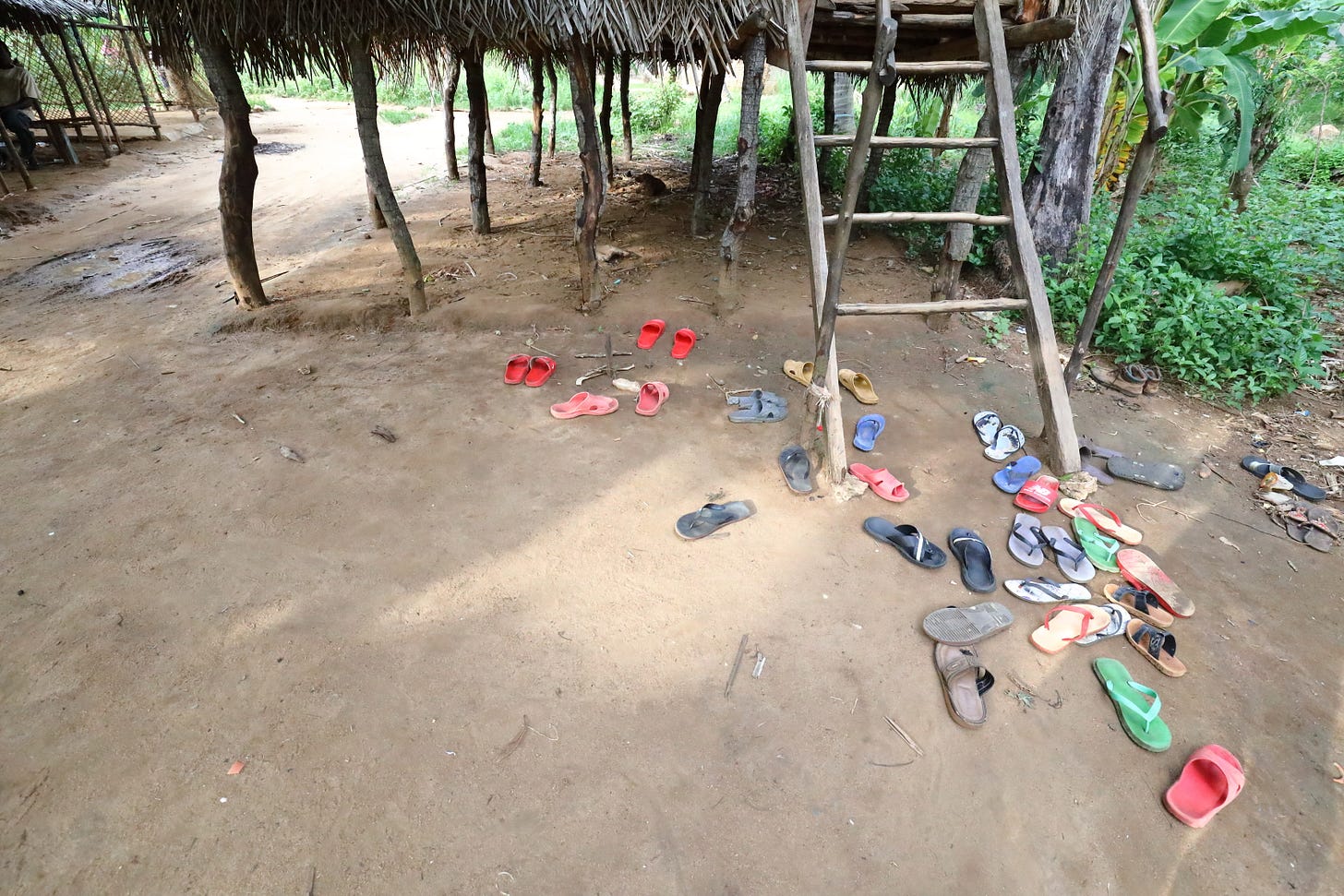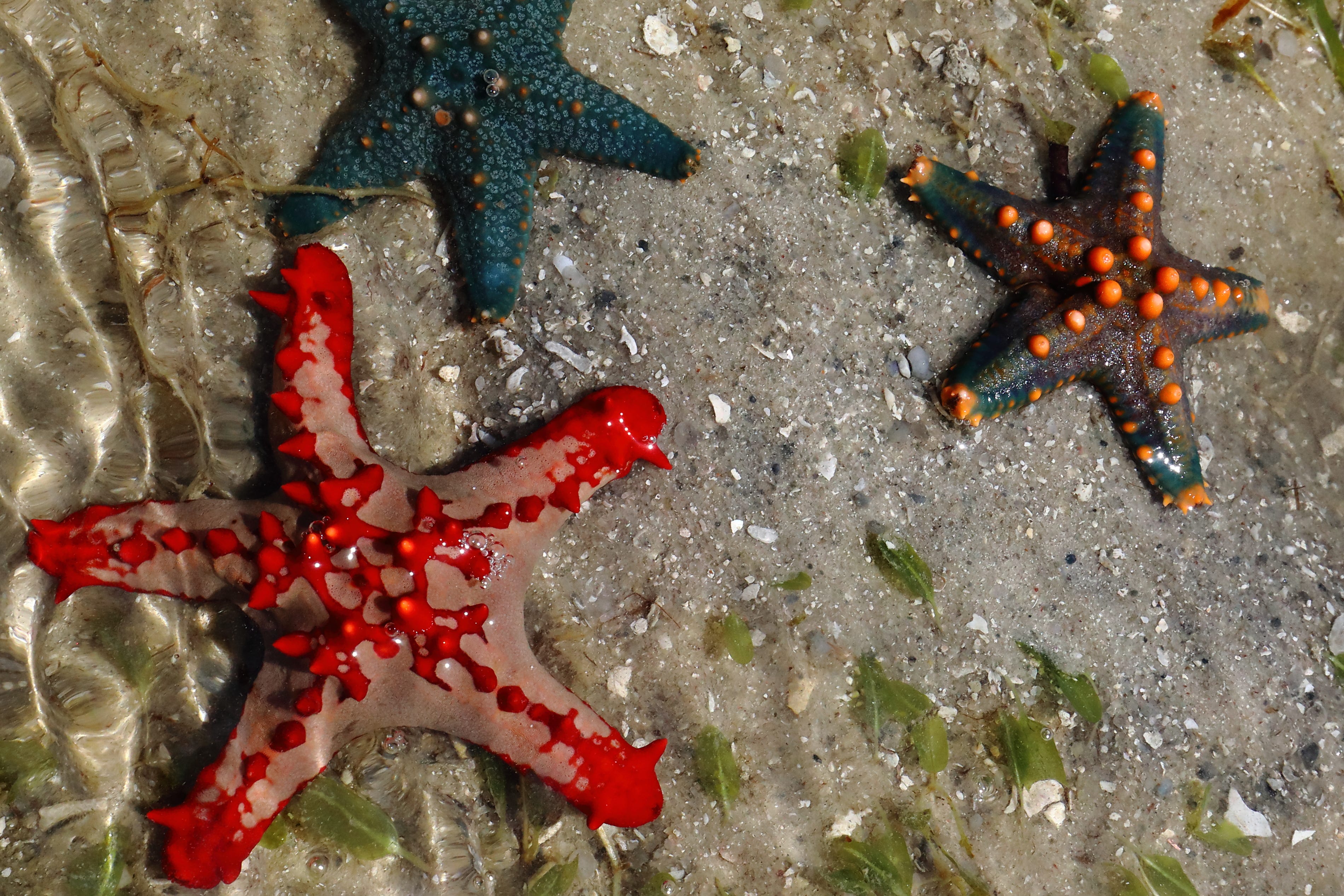The Hard Way
20 August 2023 Luis Rubiales, head of the Spanish Football Federation, kisses midfielder Jenni Hermoso after the World Cup final victory. He insists the kiss was consensual. She says it wasn’t.
16 September 2022 In Iran a 22-year-old woman detained for refusing to cover her hair dies in custody. Witnesses saw Mahsa Amini brutally beaten by police.
2019 I travel to the Tanzanian coast and meet some inspiring characters, including one woman who managed to climb out of extreme poverty.
"I can’t remember my mother’s face. She died when I was too small." Hisan is sitting on a verandah overlooking the sea. There's a couple of fishing boats sailing past. On the horizon, tufts of coconut palms mark the beaches on Mafia Island. It's the kind of scene that finds its way into tourist brochures or Instagram. "There were nine children and our father was a fisherman,” Hisan continues, “But he could not cope financially. He left us with our grandmother and went away. After one month she died and we were alone in the world."
I had arrived on Chole that morning, from Mafia where I was staying. Early in the morning, I'd walked down to the beach to wait for the small ferry. There was a man with a bicycle and four colourfully-dressed ladies with a tub of tomatoes. They told me about Hisan. "She was the first girl from Chole to be educated."
The tiny Tanzanian island of Chole was once a thriving slave market run by Arab merchants from Zanzibar. People would be captured from villages along the Rufiji delta and brought here to be sold as agricultural labourers. In times of extreme hardship parents would sell their children, but mostly it was done by kidnapping. Getting off the ferry, I had soon found the ruins of the slave market, then wandered onwards along the sandy paths that wound between the mango, cashew and banana trees. In one giant fig tree a gang of fruit bats as big as cats were fussing and fighting over the fruit. Near the huts on stilts there were piles of sea grass drying and chickens living inside wattle and daub coops up on stilts. There was no sign of any people, but I could hear the roar of a football crowd. I climbed a ladder to a hut and found all the men watching an English premier league match on television. Next door was another hut showing a movie, but all the filmgoers were men too. Where were the ladies?
"Looking after the babies. And cooking!" shouted one man. Slavery it seemed had been abolished, but only for men.
At the end of the island was a small boatyard where a lone carpenter was working on the skeletal form of a large boat. "To carry coconuts to Dar es-Salaam," he told me.
"And people?" I ask.
He shrugs. "Some come here from the Comoros Islands. They want to reach Europe and get rich." He pulls a face. "How can they leave their homeland? How can they do that?" He seems genuinely mystified.
I ask about Hisan and he directs me. She works in the island's hotel. When I get there, she is opening up the cafe. It's out of season so no one has arrived. We sit down. She's tiny, well below five feet tall.
"When grandmother died, we ate one meal a day. In the dry season we sometimes had nothing. My brother caught fish. All of us are very small because we were always hungry."
I ask about the situation on Chole for girls and women. "Even now some girls and women have to ask permission from their husbands or fathers to go to Mafia," she tells me. "When I was a girl, there was no primary school here. Going to Mafia was the only way to get an education. I had no dreams of the future, nothing. All I knew was that when I reached thirteen I might get married."
Her older brother moved across to Mafia to fish there and she followed, standing outside the primary school every morning until the teacher took pity and let her in.
"It was then that my brother had some good luck: he got a job as a waiter in a hotel run by two foreigners, Jean and Ann de Villiers, and through them he met an American lady, Deborah, who took an interest in us."
Deborah arranged to send Hisan and her brother, Athman, to secondary school in Tanzania’s largest city, Dar Es-Salaam. "I was so scared. All the traffic and people. Without my brother I would never have survived. And he told me, 'You need a dream. What is your dream?'"
Eventually Hisan worked it out. She wanted to graduate from university and return to Chole to show other girls what was possible. "On the island people just sat doing nothing and watching white people walk around. Some of the men told my brother that he must stop me going. 'She will come back with a pregnancy.' But he refused to listen to them and supported me."
After secondary school, she went to look at the university. "Actually I didn't really understand what a university was. I looked at the list of courses and none of them meant anything to me. My brother said, you must choose, so I went for Business Administration. The words sounded nice. I had no idea what it was."
Her brother supported her and the hotel came through with a grant. "Money was still hard. I didn't eat much," She laughs. "But I was used to that."
In 2013 she and her brother Athman became the first university graduates from Chole Island. He went to work for the Helen Keller Foundation in Dar while she came back to Chole as business administrator in the Chole Mjini hotel. "The boys and girls see that I am helping my family, not only with money but with advice. Even my father came back and he listens to me now. The people see that it is possible to break away from poverty."
Back on Mafia that evening, I skip out of my tourist hotel and head for the village with Mattias, a dive instructor and another local with a positive story. Born on the border with Mozambique, he drifted up the coast, surviving by selling fish. On Mafia, however, he became fascinated by the foreign divers who came to see the reef. He volunteered to work on a dive boat for free, then started secretly borrowing dive gear to learn how to do it. When the owner found out, he agreed to train Mattias who became one of the first local dive masters.
"Here we used to have a lot of fishing with dynamite. People would throw sticks of dynamite at the reef and collect the fish."
The demarcation of the reef as a reserve has divided locals. Some want to carry on dynamite fishing, others have got jobs with tourism and see the benefits of protecting the environment. The village is built on sand under the coconut trees. At night the sounds are muted and soft. There is no electricity, only lamps. We go to Batiti's, a little restaurant run by an old lady who serves fish and rice. Everyone is busy. The woman in the hair salon is busy; the woman in the video shop is busy; the woman serving at the bar is busy; the woman who brings us ginger tea is busy, but stops to listen when Mattias talks about things he's seen under the sea. "The Spanish dancer is my favourite creature," he says. "You've never seen anything like it. So beautiful. It is very red and moves through the water like a dancer." His hands move, trying to mimic the delicate flowing movement. He laughs. "Actually, it's funny because the Spanish Dancer is a kind of slug. It’s a beautiful slug."
The tea lady is entranced and wants to hear more.
Has there ever been a female dive master from Mafia?
"Not yet," says Mattias, glancing at the tea lady, "But I think one day there will be."
I'm travelling over the next month and may be unable to post. If nothing appears, check out the archive of stories. There’s lots to read in there.







Please write a book! And why don't travel publications publish these type of stories? I love reading them.
Inspirational. Uplifting. A positive spotlight.